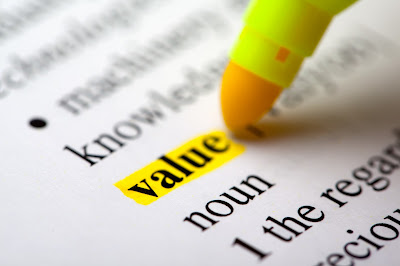A value that lead people
 |
| Arie and Jacqualine, the founder of Pyopp Photo credit to pyoppfledge.com |
An author and marketing guru, Seth Godin, once said, “Don’t be different just to be different. Be different to be better.” This quote can be a tangible output if individuals are able to catch this statement wisely. Because being different is more than challenging. However, the story of Arie and Jacqualine, a married couple, would be a representative of the importance of being different. Both are the founders of Pyopp Fledge, the first adult barefoot footwear company in Indonesia. Their daughter, Alicia, was diagnosed with flat feet when she was 16 months old.
Long story short, the situation has been an initial inspiration to build Pyopp (way before the Pyopp Fledge), a kid’s shoe designed to replicate barefoot as closely as possible. According to the website, the journey was not smooth. They got a ton of criticism from people around them because of the design of the product. “The soles are too thin," “The shoes do not support the feet very well," etc. To be different is more than challenging. Indeed.
Nevertheless, time by time, either Arie or Jacqualine never stops spreading the importance of the product and improving it day by day as well. Moreover, they began to widen the product not only for kids but also for adults. The key rationale for their innovation is the fact that 40–60% of the world population suffers from flat feet. In addition, Russian scientists in different years revealed flat feet in 20–30% of the examined children (Galkin, 2017).
Arie and Jacqualine have an obvious value: they intend to take part in better health and well-being through their product. It's something I genuinely admire. Both journeys made me think of the value concept that Mahotra and Shots (2022:5) explained. There are four levels of values: (a) personal, (b) interpersonal, (c) organizational, and (d) societal. It comes from a personal value: caring. They care a lot about their child’s health condition. Then, at the interpersonal level, the values are shared between people with related stories.
While running the business, their value statement is clear: taking care of people through the product. Unfortunately, in this context, I am unable to examine deeper into the organization itself, for instance, the rules, the internal norms, or even the incentives. Furthermore, at the societal level, caring for each other is one of the crucial values in Indonesia. The World Giving Index (2022) reported Indonesia as the most generous country in the world.
 |
| Me and my pair of Pyopp! |
Nurhadi, a sociology lecturer at Universitas Sebelas Maret in Indonesia, claimed that generousity has a firm correlation with caring. “It is the big social capital in Indonesia,” said Nurhadi, as cited from kompas.com. In a word, from the personal value of the Pyopp founder, I would say it connects with their everyday connections, executes in their organization, and, at the macro level, is in line with the values of society. And from another point of view, the societal value could also influence the other level until the personal level; values are inter-subjective.
La’Kita Williams, the founder of Co-Create Work, mentions the importance of emotional agility. In a word, Williams defined emotional agility as the ability to recognize emotions before reacting. If only that married couple were blaming the diagnosis or themselves, the situation would be totally different. It might not be a Pyopp product today. However, they can manage their emotions and their reactions to be positive. They accepted it, learned about the foot fleet, and found solutions for their loved ones until they found a brilliant product not only for Alicia but also for the wider public.
In a nutshell, Arie and Jacqualine, through Pyopp, inspired me about the importance of values that lead people to be different and to be better, not only for personal pursuit but also for people at large.



Komentar
Posting Komentar